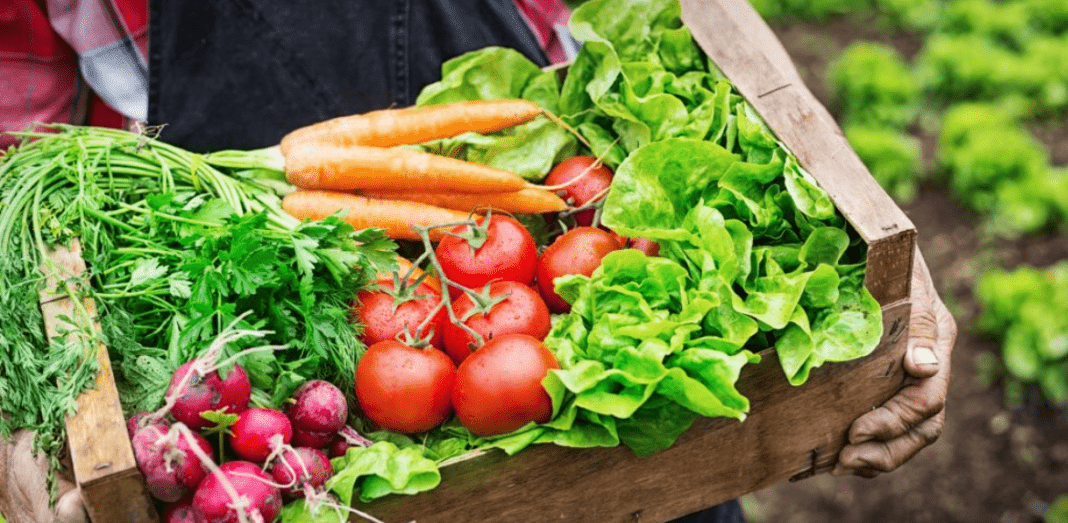No matter your diet choice, it is always a good idea to eat local, organic foods. Not only are they good for your health, but they are optimal for planetary health as well. Local, organic foods are free of harsh chemicals and teeming with nutrition. Here are the top five reasons to switch to organic foods.
Free of chemicals
Eating organic foods is the best way to avoid the bombardment of chemicals found in commercially grown foods. They have been grown without synthetic pesticides, irradiation, chemical fertilizers, industrial solvents, or chemical food additives. Studies have shown that pesticide levels in children’s urine were significantly lower if they ate organic diets.
An excellent way to ensure food is organic is by checking the labeling of the product. According to Fact Retriever, organic food labeling standards are based on the percentage of organic ingredients in a product. Products labeled 100% Organic can only contain organically produced ingredients. Products labeled organic must at least have 95% organically grown ingredients. Processed products made with at least 70% organic ingredients may use the phrase made with organic ingredients.
The National Academy of Sciences says 90% of the chemicals that are applied to commercial foods haven’t been tested for potential long-term health effects before they are deemed “safe.” The Food and Drug Administration (FDA) only tests 1% of foods for pesticide residue.
No GMO’s
GMO’s, or genetically modified organisms, are living organisms, such as plants, that have had their genetic code altered somehow. Unlike conventional breeding, which involved completely mixing genes from separate organisms, GMO production is much more precise. One or two genes are inserted into the target organism.
Because of their relatively new appearance in the food market, there is still much to learn about GMOs. The rapid incline within the food industry and its unknown repercussions have put many people on edge about consuming GMO products. To stay on the safer side, local, organic foods are the best option. As previously stated, organic foods are not allowed to be genetically modified in any way and must have truthful labeling.
Sustainable
Local, organic farming supports eco-sustenance, which is farming in harmony with nature. The limited use of chemicals helps preserve ecosystems and halt contamination: chemicals, pesticides, and fertilizers commonly used in commercial farming. Crop rotation practices benefit soil preservation and help maintain healthy farmland. The lack of compromise allows insects, animals, and other organisms to exist without being harmed freely.
David Pimentel, an entomologist at Cornell, estimates that only about 0.1% of pesticides reach the targeted pests. The rest of the whopping 99% is left impacting the environment.
Preserve environmental diversity
Species today are declining at a rapid rate. 75% of the genetic diversity that was once in crops is estimated to have been lost in the last century alone. Depending on a limited variety of food is bound to lead to devastation. Whole crops being wiped out can lead to millions of people dying of starvation. Crop rotation, as mentioned before, is a simple but very effective technique to preserve organic agriculture, reduce pesticide use, and improve soil fertility. Local, organic food production also promotes the growth of various indigenous strains, tolerable in many regional conditions such as pests and droughts. On the other hand, conventional food production is highly hybridized, meaning large, ‘attractive’ organisms are produced.
Supporting local farmers
Instead of investing in the heavily subsidized tax dollars of commercial/conventional farming, it is much more beneficial and cost-effective for the future if you invest in organic foods. A study released by Cornell University found that the cost of a generic head of iceberg lettuce, which is typically priced at 0.49 cents a head, was over $3.00 a head when the hidden costs of federal subsidies, hazardous waste, and cleanup, and pesticide regulation/testing were revealed.
Supporting local farmers who produce organic foods helps them make more money on their counterparts. They save tons of money from the reduction in chemical pesticide use. Even though they might have a slightly lower production count, they are still selling well.







